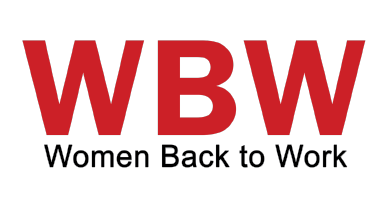Unlocking the Power of DEI in Workplace
Diversity, Equity, and Inclusion (DEI) initiatives are crucial in fostering a more equitable and inclusive work environment for all employees.
These drives aim to address discrimination, biases, differences of opinion, and undervaluation issues, creating a culture of respect and inclusion for individuals from various backgrounds.
From training and education programs to hiring practices and policy changes, DEI initiatives take various forms, all with the ultimate goal of promoting diversity in all its forms, eliminating discrimination, and creating a fair workplace.
The Significance of DEI Drives
Diversity, Equity, and Inclusion (DEI) initiatives play a pivotal role in shaping a fair and just society that values and respects differences. These initiatives seek to promote and support diversity across dimensions such as race, gender, sexual orientation, and capabilities, working to eliminate any forms of discrimination and bias for a balanced workplace.
The essence of DEI initiatives is clear: a more diverse and inclusive workforce with DEI principles leads to better individual performance, increased innovation, improved employee engagement and retention, and an overall enhanced employee experience.
Furthermore, robust DEI practices enable organizations to attract and retain top talent from underrepresented groups, enhancing their reputation and public image by fostering a culture of inclusion.
According to a study by McKinsey and Company, companies in the top quartile for racial and ethnic diversity are 35% more likely to have financial returns over their respective industry medians.
A crucial aspect of DEI initiatives is the cultivation of a commitment to diversity as core company values. This not only results in a more creative and productive talent pool but also fosters a better understanding and connection with the diverse communities that an organization serves, contributing to a more positive and inclusive company culture.
According to findings from the Center for Talent Innovation (CTI), women of color who have mentors are 81% more likely to experience satisfaction with their career advancement compared to those who do not have mentors.
Addressing Discrimination and Bias
DEI initiatives also aim to address and eliminate underlying discrimination and bias. This involves creating policies and procedures to tackle discrimination and bias in the workplace, as well as providing training and education for employees on how to identify and resolve these issues.
Moreover, DEI initiatives often focus on establishing an inclusive environment for underrepresented groups, including ethnic minorities (particularly Black employees), women, and members of the LGBTQ+ community.
This includes providing resources and company support for these groups, ensuring their voices are heard, and their perspectives are considered in decision-making processes.
In summary, DEI initiatives are instrumental in creating a fair society, promoting diversity and inclusion in the workforce, and addressing and eliminating discrimination and bias.
Challenges and Successful Implementation
Despite the importance of DEI initiatives, many organizations struggle to implement them effectively. This can be attributed to a lack of understanding of the foundational approach to equity initiatives or a shortage of resources and support. However, there are numerous examples of organizations successfully implementing DEI initiatives and reaping the benefits of inclusive programs.
Benefits of DEI Drives
Diversity, Equity, and Inclusion (DEI) initiatives offer numerous advantages to organizations, both in terms of business outcomes and the transformation of workplace culture.
One key benefit is the potential for a more creative and productive workforce. Research has consistently shown that diverse teams bring varied perspectives and problem-solving approaches, leading to more critical thinking and effective solutions. Additionally, a diverse workforce fosters a deeper understanding and connection with the diverse communities an organization serves.
Another advantage of DEI initiatives is improved financial performance. Companies with diverse leadership teams are more likely to experience better financial results, and those prioritizing DEI are perceived as socially responsible, attracting, and retaining top talent.
This is particularly crucial in a business environment where consumers prioritize socially responsible companies aligning with their values.
DEI initiatives also contribute to a genuine workplace culture change, resulting in increased job satisfaction, higher employee engagement, and reduced turnover rates. A culture of inclusion not only provides support and a sense of belonging for all employees but also boosts productivity and enhances the company’s reputation.
Furthermore, DEI initiatives help organizations align with their legal and ethical obligations. Discrimination and bias in the workplace are unlawful and can lead to legal and financial consequences. DEI initiatives assist organizations in identifying and rectifying unfair practices, creating a fair and just working environment.
This is where Women Back to Work fit in and make you understand that DEI initiatives are both an ethical commitment and a strategic business decision that can benefit organizations in the long run.
By promoting diversity, equity, and inclusion in the workplace, companies can foster a more innovative, productive, and inclusive work culture, attract top talent, and improve their financial performance. It’s time for organizations to view DEI as a long-term investment rather than a short-term commitment.
Incorporating unconscious bias training, creating an environment of diverse, equitable, and inclusive job descriptions, setting clear DEI goals, and establishing an inclusive work environment are crucial steps toward creating a workplace that values all races, ethnicities, and diverse talents.
Successful DEI initiatives not only transform hiring practices but also contribute to a positive company culture where every employee experiences a genuine sense of belonging. By learning and implementing best practices, organizations can make significant strides in creating a workplace that truly embraces diversity, equity, and inclusion.
It’s time for businesses to recognize the importance of DEI as a strategic imperative, driving positive change and fostering a work environment that reflects the richness of our diverse world.
Reach out to us today.
